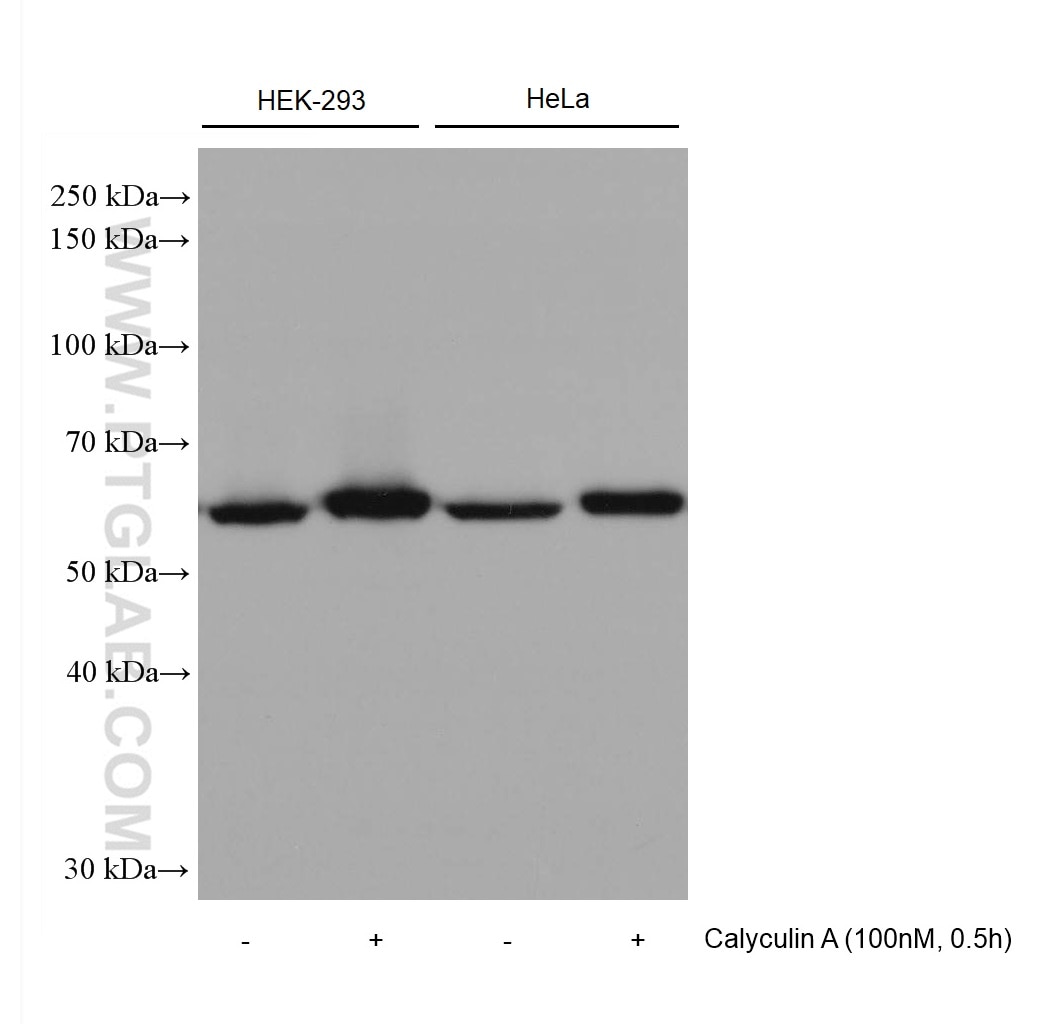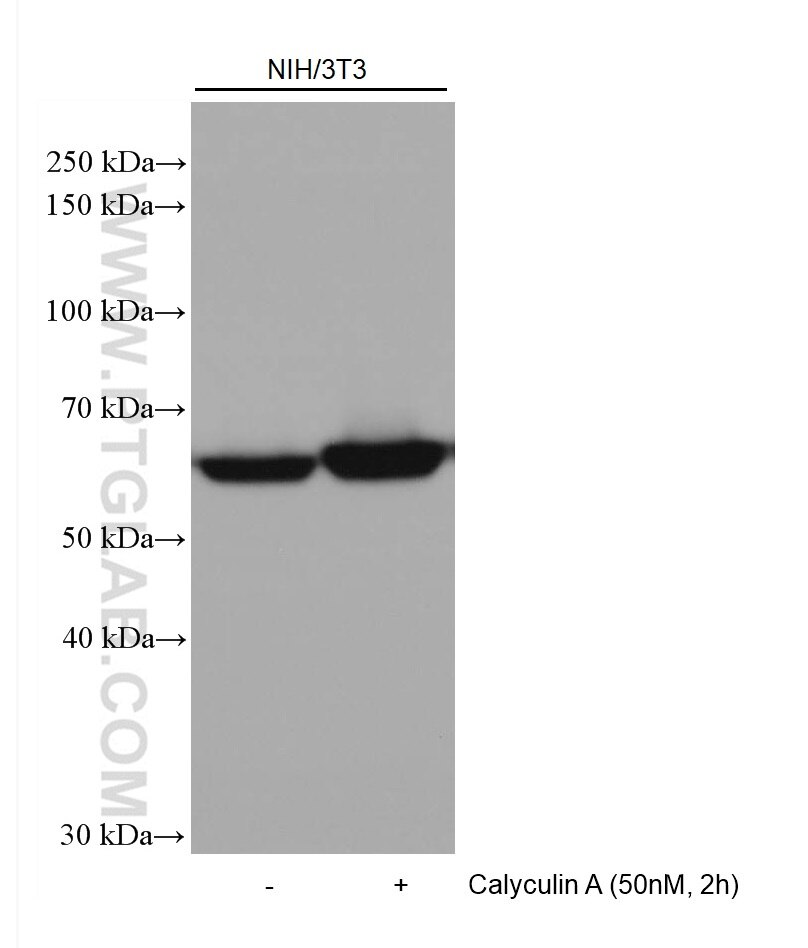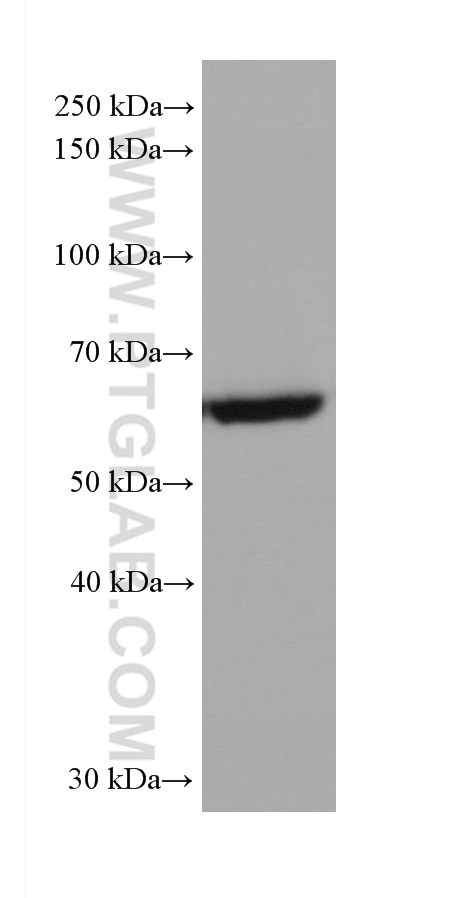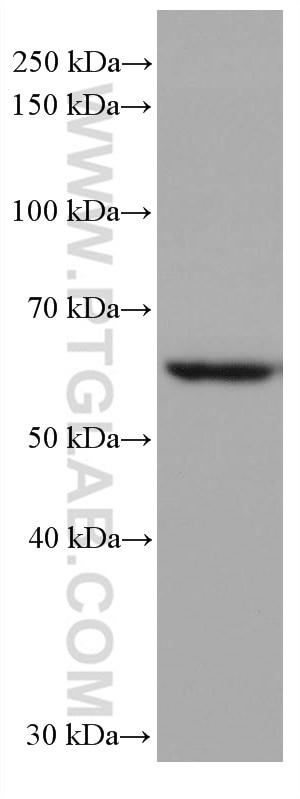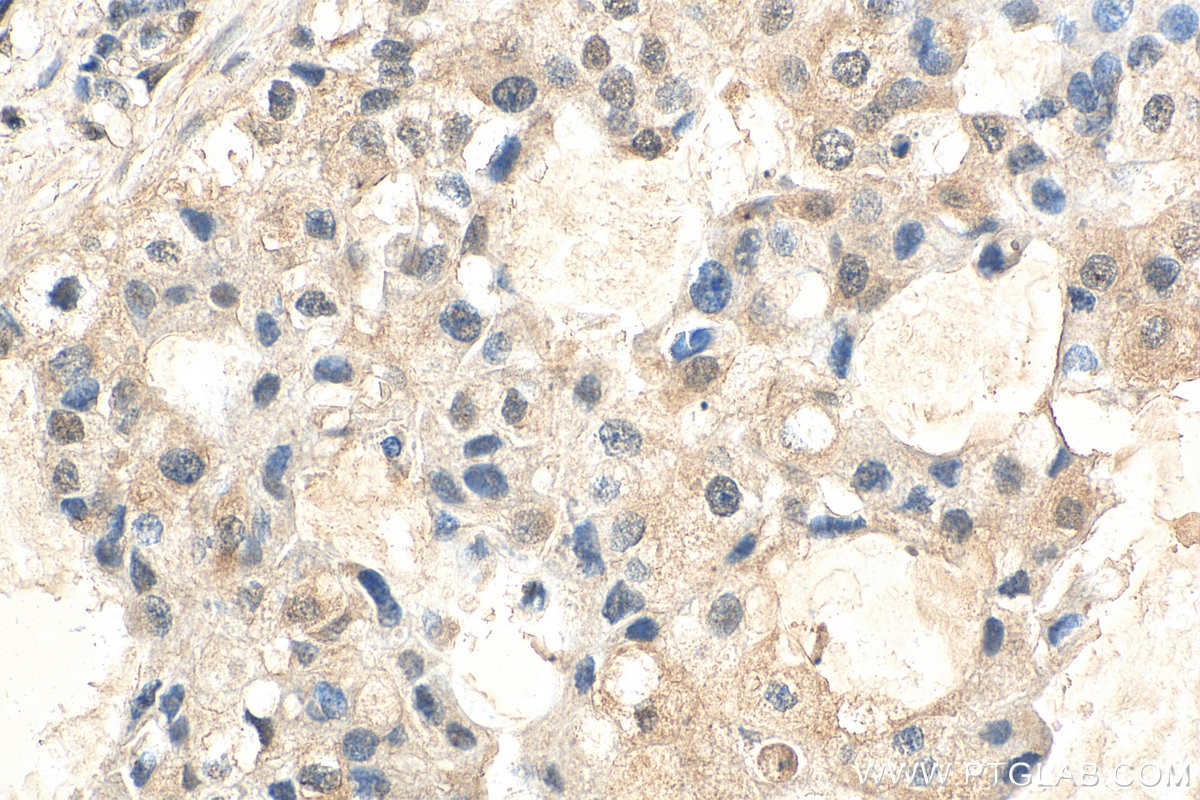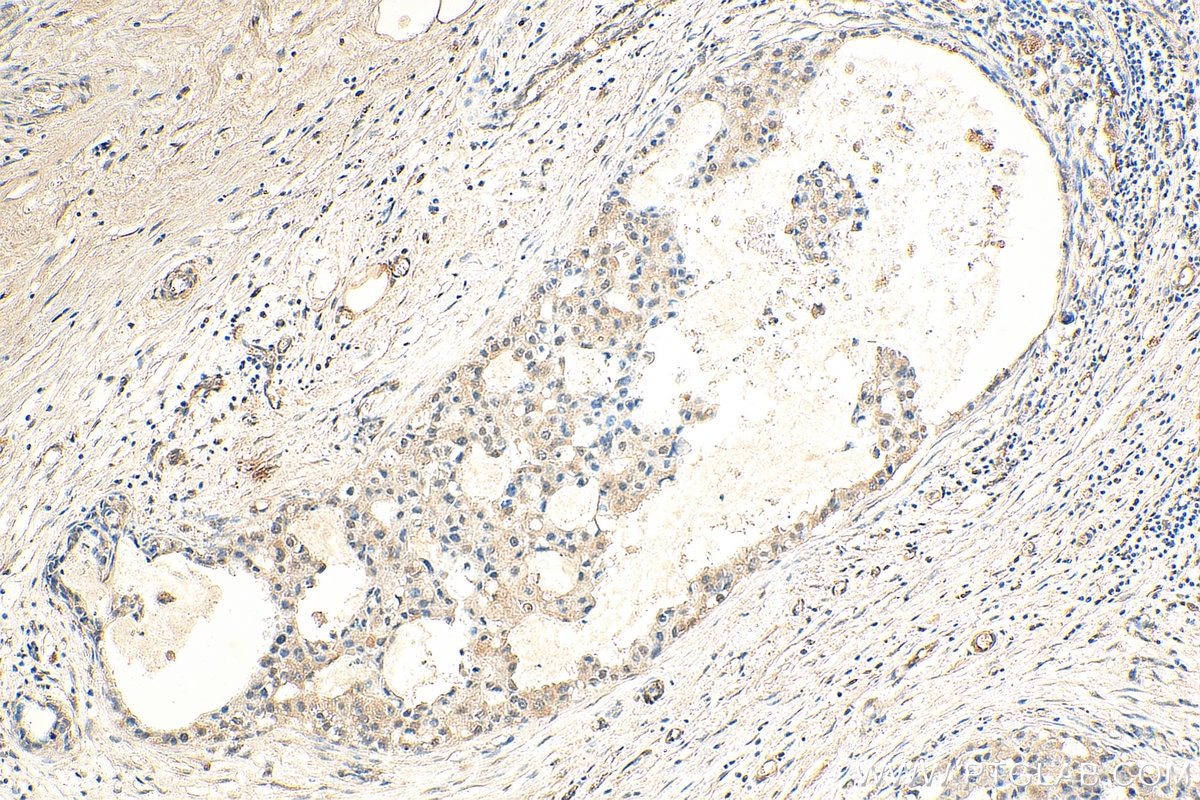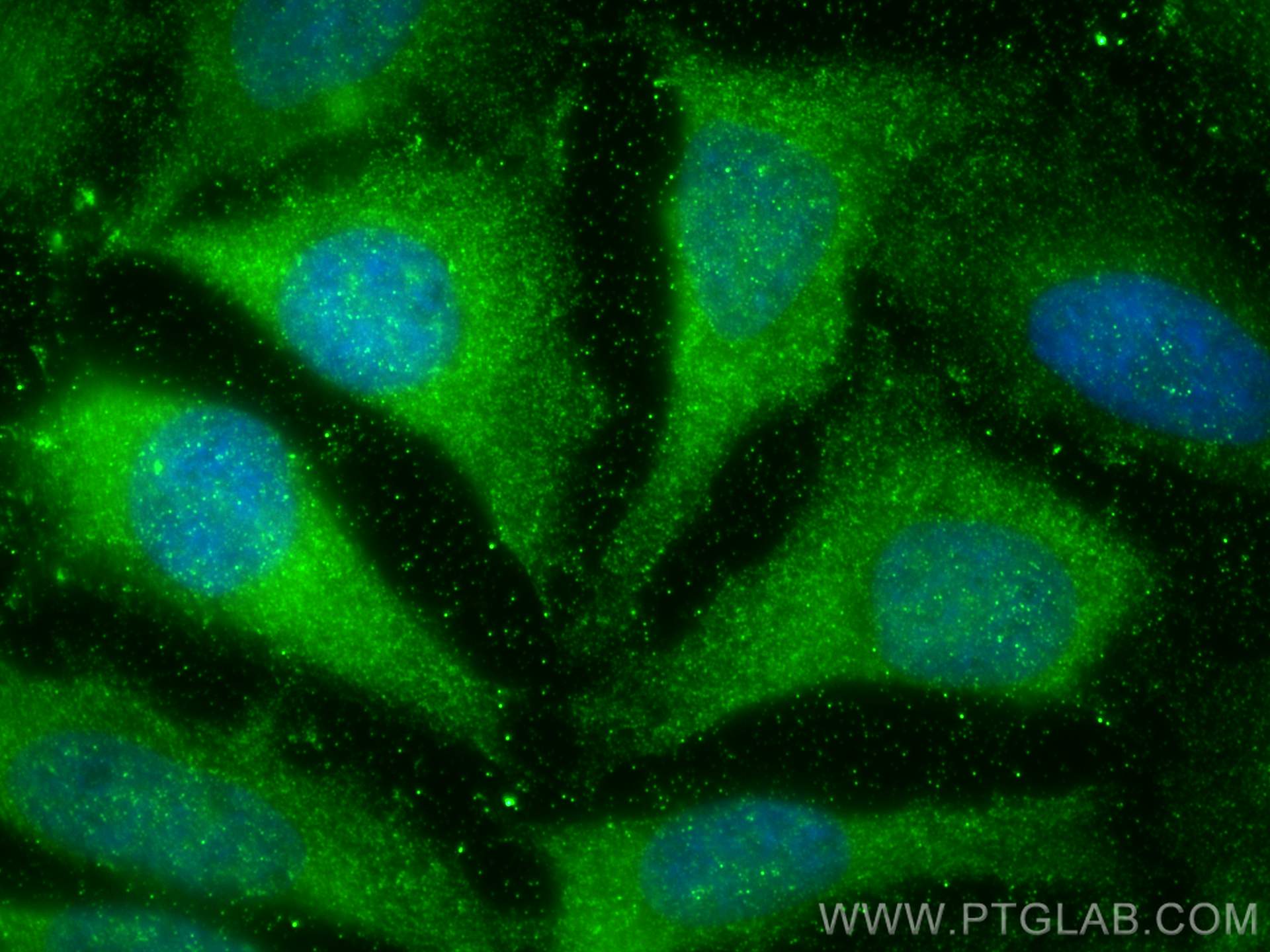Validation Data Gallery
Tested Applications
Recommended dilution
| Application | Dilution |
|---|---|
| It is recommended that this reagent should be titrated in each testing system to obtain optimal results. | |
Product Information
80457-1-PBS targets AKT1-Specific in WB, IHC, IF/ICC, Indirect ELISA applications and shows reactivity with human, mouse samples.
| Tested Reactivity | human, mouse |
| Host / Isotype | Rabbit / IgG |
| Class | Recombinant |
| Type | Antibody |
| Immunogen | Peptide 相同性解析による交差性が予測される生物種 |
| Full Name | v-akt murine thymoma viral oncogene homolog 1 |
| Observed molecular weight | 56-62 kDa |
| GenBank accession number | NM_005163 |
| Gene Symbol | AKT1 |
| Gene ID (NCBI) | 207 |
| RRID | AB_2918893 |
| Conjugate | Unconjugated |
| Form | |
| Form | Liquid |
| Purification Method | Protein A purification |
| UNIPROT ID | P31749 |
| Storage Buffer | PBS only{{ptg:BufferTemp}}7.3 |
| Storage Conditions | Store at -80°C. |
Background Information
AKT is a serine/threonine kinase and it participates in the key role of the PI3K signaling pathway. Phosphatidylinositol-3 kinase (PI3K) is the key regulator of AKT activation. The recruitment of inactive AKT protein to PIP3-rich areas of the plasma membrane results in a conformational change that exposes the activation loop of AKT. AKT's activating kinase, phosphoinositide-dependent protein kinase (PDK1) , is also recruited to PIP3 microdomains. PDK1 phosphorylates AKT on threonine 308 (Thr308) of the exposed activation loop, activating AKT and leading to a second phosphorylation of AKT at serine 473 (Ser473) by a kinase presumed to be mTORC2 that further potentiates kinase activity. Active AKT will phosphorylate various downstream protein targets that control cell growth and translational control and act to suppress apoptosis. (PMID: 31594388, PMID: 30808672). 80457-1-RR specifically recognizes AKT1.
